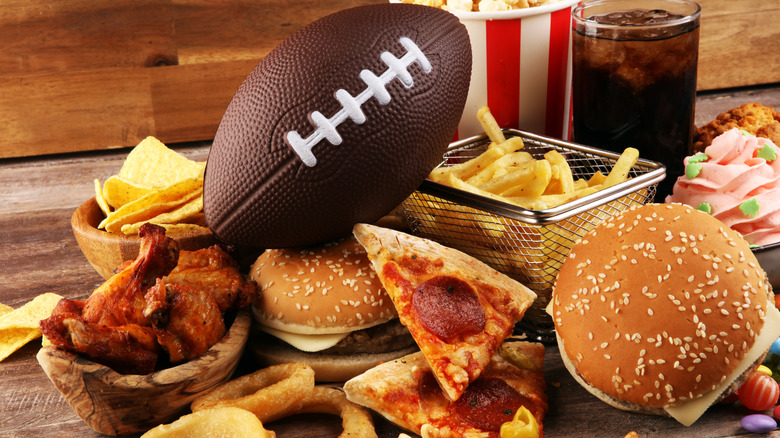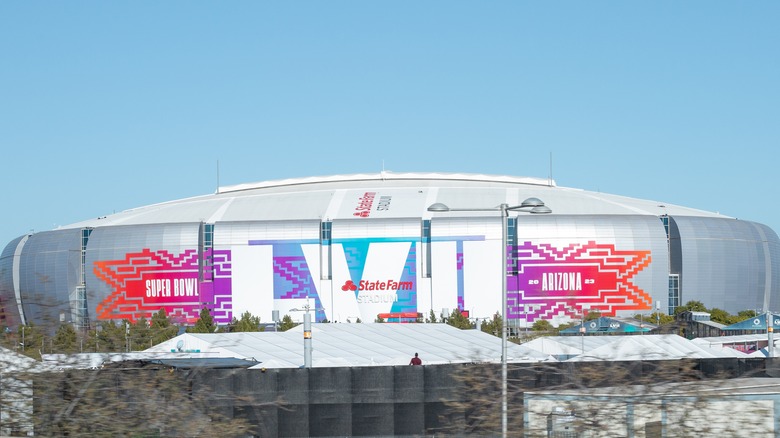How Companies Are Tackling Food Waste After The Super Bowl
Perhaps no event in American life generates more interest than the Super Bowl. More than 70,000 people will be in the stands for this year's game, Super Bowl LVII, which takes place Sunday, February 12, and matches the Kansas City Chiefs against the Philadelphia Eagles at State Farm Stadium in Glendale, Arizona, per CBS Sports.
The in-person attendance number pales in comparison to the nearly 200 million people who will watch the game on television and the 100 million or so who will watch while attending Super Bowl parties, according to the National Retail Foundation. But 70,000 people are still capable of making a lot of noise. They're also capable of generating a lot of waste, specifically food waste.
Fortunately, there's a plan to salvage the food waste generated by gamegoers and during the Super Bowl-related events being held in the days leading up to kickoff. As CNN Business points out, the Food Recovery Network (FRN) and other organizations are standing by, hoping to turn the game into a celebratory occasion for more than just the football players on the field and the legions of fans watching them. They're also hoping to use the surplus food to help feed thousands of people suffering from food insecurity.
Super Bowl events could generate 140,000 pounds of surplus food and beverages
The FRN was started in 2011 by five students at the Univesity of Maryland, and in the more than 10 years since, it has grown to more than 100 chapters nationwide. According to CNN Business, this will be the third year the organization has helped collect surplus food from the Super Bowl, and it estimates as much as 3,000 pounds will be saved from the Super Bowl Players Tailgate party alone, a big-ticket VIP event for players and celebrities that Bobby Flay will host this year.
Per The Guardian, the surplus food from this Super Bowl Tailgate Party will be gathered by the local FLN chapter and carted by refrigerated trucks to its ultimate destination, the Phoenix Rescue Mission. These eats are expected to translate to 2,500 meals at the mission, a massive increase over the meals generated by last year's party.
This year's Super Bowl and related events are expected to generate around 140,000 pounds of surplus food and beverage. The food should help to feed the half a million people who suffer from food insecurity in Maricopa County, which is home to both Glendale and the Phoenix metropolitan area. Some surplus food from State Farm Stadium in Glendale will also be diverted to local farmers, Bloomberg reports, who will repurpose it as animal feed.

